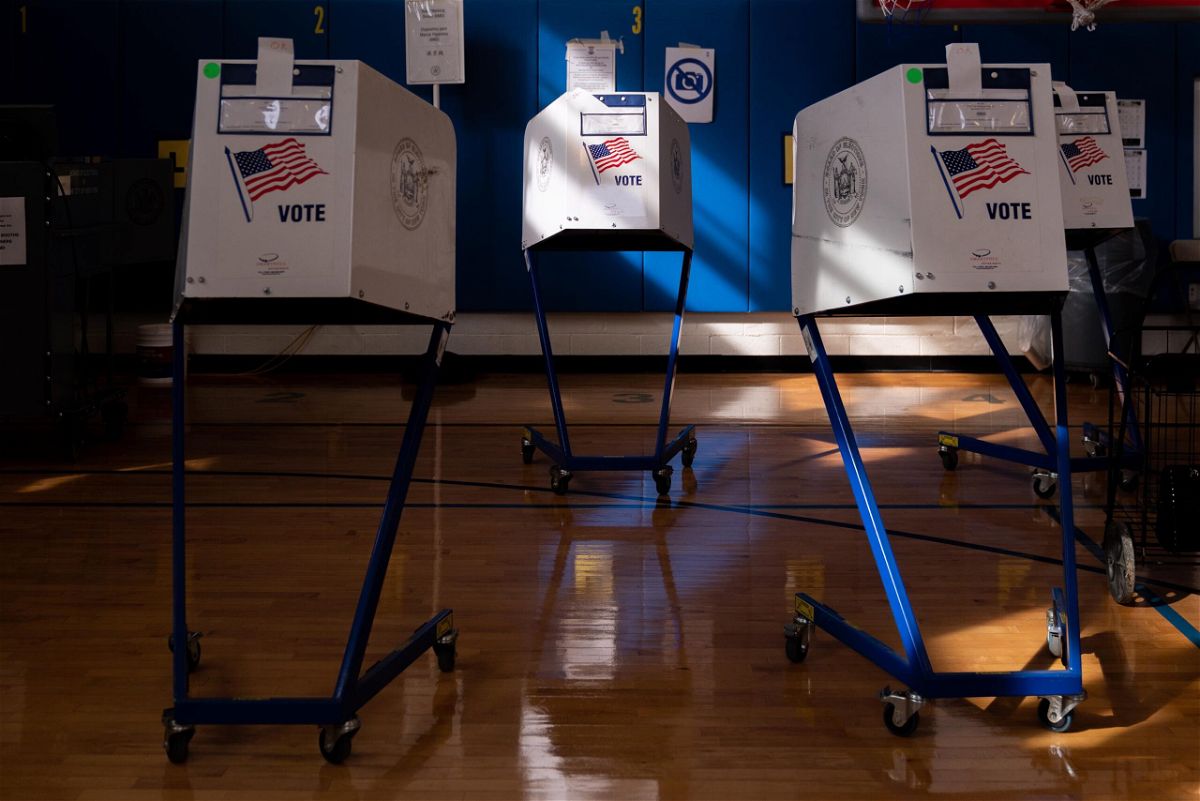Supreme Court agrees to hear redistricting case that could have major implications for voting rights

The Supreme Court on June 30 agreed to hear a dispute over redistricting in North Carolina
By Ariane de Vogue and Gregory Krieg, CNN
The Supreme Court on Thursday agreed to hear a dispute over redistricting in North Carolina, a case that could have major implications for voting rights across the country and fundamentally change the landscape of election law.
At the center of the wide-ranging case is the fate of a legal doctrine that allows state courts to check the behavior state legislatures. A decision to undermine the courts could empower state lawmakers in disputes over redistricting maps and potentially offer them more freedom to intervene in federal elections.
The decision to hear the case is a boon to Republicans, who control the majority of state legislatures, and have seen congressional and state legislative maps struck down by state courts.
The so-called “Independent State Legislature” theory, which lies at the center of the legal nuts and bolts, was also pushed by allies of former President Donald Trump after the 2020 election as part of their bid to effectively overrule the will of voters and potentially replace electors for President Joe Biden with slates selected by Trump allies in state government.
If the theory is embraced by the Supreme Court’s conservative supermajority, critics say, rogue legislators would be freed to act without any constraints by courts in their states.
The case will be heard next term.
Traditionally, according to Rick Hasen, an election law expert at the University of California, Irvine School of Law, legislatures have set ground rules for conducting an election, but not acted alone or with the final word. The processes they set in place, as it currently stands, are also subject to intervention and interpretation by election administrators and state courts.
“If the Supreme Court adopts this theory, voters would have their rights further eroded by a neutering of state courts’ ability to be more protective of voters than federal courts,” Hasen said.
The appeal at issue was brought to the high court by Republicans in North Carolina who are challenging congressional maps drawn by state judges that favor Democrats.
The dispute began after North Carolina gained a seat in the House of Representatives, and the North Carolina General Assembly twice adopted new congressional districting maps. On both occasions, however, the state Supreme Court rejected the maps and finally ordered that the 2022 election go forward with maps drawn by judges. The court held that the General Assembly’s maps amounted to partisan gerrymanders and violated provisions of the state constitution.
“Achieving partisan advantage incommensurate with a political party’s level of statewide voter support is neither a compelling nor a legitimate governmental interest,” the majority wrote in its opinion.
Lawyers for Republican state House Speaker Timothy Moore and state Senate President Pro Tempore Philip Berger asked the Supreme Court to step in to block the lower court ruling on an emergency basis back in March.
Back then, the court declined to step in over the dissent of Justices Samuel Alito, Clarence Thomas and Neil Gorsuch. Alito, writing for his colleagues, said that the case presented an “exceptionally important and recurring question of constitutional law.”
“If the language of the Electors Clause is taken seriously, there must be some limit on the authority of state courts to countermand actions taken by state legislatures when they are prescribing rules for the conduct of federal elections,” Alito wrote.
Justice Brett Kavanaugh concurred with his conservative colleagues that the court should eventually take up the issue of the role of state courts. But he joined the majority in the case at hand, allowing the maps to be used for upcoming election procedures.
“This Court has repeatedly ruled that federal courts ordinarily should not alter state election laws in the period close to an election,” Kavanaugh wrote.
After that defeat on the emergency application, David Thompson of Cooper & Kirk, a lawyer representing the North Carolina Republicans, came back to the court asking the justices to take up the appeal and decide the issue in time to impact future elections.
In court papers, he acknowledged that the 2022 congressional elections in North Carolina will take place under the current maps but said that the court should “intervene now to resolve this critically important and recurring question and ensure that congressional elections in 2024 and thereafter are conducted in a manner consistent with our Constitution’s express design.”
He argued that the Elections Clause “creates the power to regulate the times, places and manner of federal elections and then vests that power in the ‘legislature’ of each State.”
“It does not leave the States free to limit the legislature’s constitutionally vested power, or place it elsewhere in the State’s governmental machinery, as a matter of state law,” he said.
State court intervention in the redistricting process has made headlines ahead of the current election in a number of states.
New York’s congressional and state senate primaries were pushed back to late August after the state’s highest court struck down two sets of maps drawn by the Democratic-controlled legislature earlier this year and put in place a “special master” to author a new borders.
The-CNN-Wire
™ & © 2022 Cable News Network, Inc., a WarnerMedia Company. All rights reserved.